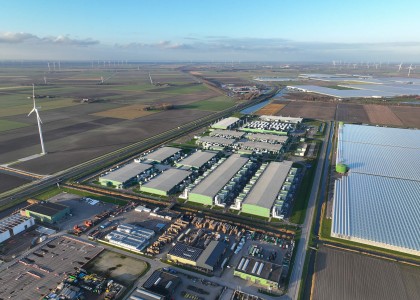This testimony responds to an invitation from the House Energy and Environment Subcommittee of the Committee on Science and Technology to inform Committee Members about the role of the Department of Energy's research programs in:
- o developing technologies and standards to enable deployment of net-zero energy buildings,
- o support sustainability in domestic industries, and
- o highlight R&D areas which need continued attention to achieve the goals of the DOE net-zero energy buildings program and beyond.
This testimony specifically addresses the need for increased research support to investigate and apply insights from the social and behavioral sciences. As discussed in this testimony, insights from the social and behavioral sciences offer an important opportunity to enable a significantly greater level of energy savings in buildings, industry, the residential sector, and transportation. More specifically, social science insights can help maximize potential technology-based savings; improve decision making; and reveal social, behavioral, and cultural means of motivating and facilitating smart energy behaviors.
Without the development and application of insights from the social and behavioral sciences, energy efficiency programs and policies will be constrained by the persistence of two important gaps:
- o the gap between the potential energy savings of existing technologies and the actual energy savings achieved, and
- o the gap between the good intentions of individuals, businesses, and institutions and the less-than-adequate translation of those intentions into smart energy behaviors.
According to several ACEEE studies of the unrealized energy efficiency potential associated with existing technologies, the first gap represents lost energy savings of 30 percent or more with current technologies. Similarly, studies of prevailing attitudes and behaviors suggest that while people are often aware of the economic and environmental benefits of investing in energy-efficient technologies and behaviors, a variety of social, cultural, and economic factors frequently intervene so as to severely limit the number of individuals, households, and businesses that actually follow through on their intended actions. A better understanding and application of social and behavioral factors could deliver more of the potential energy savings available through new and existing technologies. They could also help reduce existing social and cultural barriers and motivate people to take the actions that they readily recognize as important to achieving energy savings and stabilizing (and then reducing) carbon emissions.
Unfortunately, traditional approaches to energy efficiency typically apply what is most commonly referred to as a techno-economic framework. This approach is primarily focused on achieving energy efficiency through technological and economic means. From this purview, reducing energy consumption is as simple as designing a more energy-efficient product (furnace, television, refrigerator, computer, motor, etc.) and then ensuring that the products are economical and their replacement is cost-effective. The logic is sound – as far as it goes. Programs built around this logic assume that people who are given the choice to invest in a product that is more energy efficient, with little risk and a short payback period, should adopt the superior technology. Unfortunately, however, real world experience tells a different story. In fact, research suggests that people seldom act according to the rational economic actor model. As such, we need a better means of understanding what actually motivates energy-smart behaviors, otherwise many government programs are likely to continue to under-perform. Fortunately, the development and application of a behavioral toolkit could go a long way toward substantially improving upon the more traditional approaches to energy efficiency and result in greater energy productivity and energy savings.
Of equal importance, however, is the need to recognize the potential scope of energy savings associated with social and behavioral initiatives. Such initiatives offer the potential of large energy savings. In fact, two recent studies (Gardner and Stern 2008, and Laitner et al. 2009) suggest that the potential behavior-related energy savings in the residential sector alone represent roughly 25 percent of current residential sector energy consumption. By applying insights from the social and behavioral sciences to improve our understanding of decision-making, organizational behavior, and the influence of social and cultural norms in business and industrial processes, greater energy savings could also be achieved in the commercial and industrial sectors.
Finally, it is important to recognize the significance of behavior-related approaches as an essential piece of energy and climate change efforts. In fact, the principal drivers of our current energy and climate challenges are human choices, behaviors, and lifestyles. As such, they must also be an essential part of any attempt to address these challenges, if we hope to be successful in our efforts. In other words, human and organizational behavior is a critical component of both cause and solution. The DOE's efforts would undoubtedly benefit greatly from a more systematic and widespread incorporation of social and behavioral insights. However, funding for these types of initiatives is woefully inadequate and needs to be greatly expanded in order to realize the full magnitude of potential behavior-related energy savings. Such an effort would go a long way toward closing the gaps that currently exist between: potential and actual energy savings on the one hand and between attitudes and behaviors on the other. In short, mobilizing our population to adopt energy-smart behaviors and technologies will require the insights provided by social and behavioral scientists. These insights need to become a larger part of the efforts at the U.S. Department of Energy.
Such an approach should provide widespread and accelerated research, experimentation, and application of behavior-related initiatives as well as policy initiatives that recognize the well-documented limitations of the techno-economic model and the need to integrate behavioral considerations broadly into existing programs and policies.

